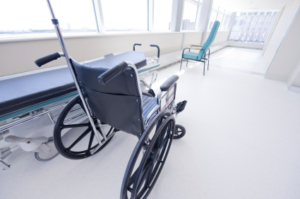State Medicaid programs focused on ensuring that beneficiaries keep their doctor appointments are increasingly looking to ride-sharing services to supplement the providers already participating in their medical transportation programs.
 Today, Lyft is working with approximately 35 state Medicaid programs while Uber, at least so far, participates only in Arizona’s program.
Today, Lyft is working with approximately 35 state Medicaid programs while Uber, at least so far, participates only in Arizona’s program.
While ride-sharing is not going to replace other medical transportation programs – for one thing, most Uber and Lyft cars are not equipped to serve individuals with serious disabilities – they can help supplement services that today typically require patients to reserve rides days ahead of time and then share van rides with other patients.
To facilitate the use of ride-sharing services, several state governments have eased regulations that require people who drive Medicaid beneficiaries to undergo first-aid training and drug testing.
While ride-sharing is not yet a formal part of Pennsylvania’s Medical Assistance Transportation Program, pilot programs using such services are currently under way in Allegheny County and Philadelphia.
Learn more about how ride-sharing is moving into the Medicaid medical transportation industry in the Kaiser Health News article “Uber And Lyft Ride-Sharing Services Hitch Onto Medicaid.”